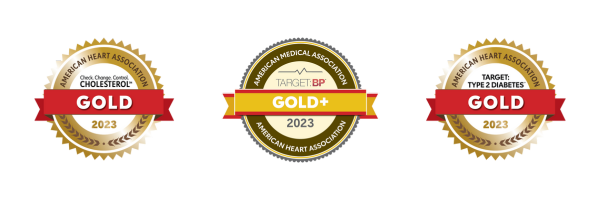Understanding the Difference between Allergies and Intolerances
Understanding the Difference between Allergies and Intolerances

As the seasons change and flowers bloom, many individuals struggle with unpleasant symptoms like sneezing, itching, or digestive discomfort. Spring doesn't have to be a season of sniffles and discomfort! Understanding the difference between allergies and intolerances allows you to identify the culprit behind your symptoms and take steps to feel your best. To help with managing your symptoms, reach out to our providers at Sisselman Medical Group.
Understanding Allergies
When the body's immune system overreacts to certain substances, allergies arise. If someone with allergies encounters an allergen, their immune system sees it as a threat and produces immunoglobulin E (IgE) antibodies specific to that allergen. This process is known as sensitization. Upon subsequent exposure to the allergen, these antibodies trigger the release of various chemicals, such as histamine, from mast cells and basophils. Histamine and other mediators cause reactions such as inflammation, swelling, itching, and mucus production.
Common Allergens
Allergens are diverse and are present in various environmental substances, foods, medications, and insect venoms. Here are the most common allergens:
- Pollen: Pollen from trees, grasses, and weeds can trigger allergic reactions, leading to seasonal allergic rhinitis (hay fever).
- Dust Mites: These microscopic creatures are in bedding, upholstered furniture, and carpets. A dust mite allergy can cause year-round symptoms, particularly in humid environments.
- Pet Dander: Proteins found in the skin flakes, saliva, and urine of pets, such as cats and dogs, can provoke allergic reactions in susceptible individuals.
- Mold Spores: Mold spores thrive in damp indoor and outdoor environments. Inhalation of mold spores can trigger allergic rhinitis, asthma, or skin reactions.
- Foods: Peanuts, tree nuts, milk, eggs, soy, wheat, fish, and shellfish are some foods that may cause allergies. Food allergies can range from mild oral symptoms (such as itching and swelling of the lips) to severe systemic reactions, including anaphylaxis.
- Insect Stings: Venom from bee stings, wasp stings, hornet stings, and fire ant bites can induce allergic reactions ranging from localized swelling and pain to systemic symptoms.
- Medications: Certain medications, such as antibiotics (e.g., penicillin), nonsteroidal anti-inflammatory drugs (NSAIDs), and chemotherapy drugs, can trigger allergic reactions in susceptible individuals.
Symptoms of Allergies
Allergic symptoms include nasal congestion, sneezing, watery eyes, itching, skin rashes, swelling, wheezing, and gastrointestinal disturbances.
How Do You Diagnose an Allergy?
Healthcare professionals diagnose allergies by allergy testing, including skin pricks and blood tests (e.g., IgE levels) to help identify specific allergens triggering symptoms, as well as a thorough medical history and physical examination to aid in diagnosing allergies and other conditions.
Managing Allergies
Management of allergies involves a multifaceted approach to reduce exposure to allergens, alleviate symptoms, and prevent complications. This includes avoiding known allergens, utilizing medications (antihistamines, nasal corticosteroids, and epinephrine auto-injectors) as needed for symptom control and emergency management, and considering allergen immunotherapy for long-term desensitization.
Patient education and support empower individuals to recognize triggers, adhere to treatment regimens, and respond effectively to allergic emergencies. This promotes better symptom control and enhances quality of life.
Understanding Intolerances
Intolerances involve difficulty digesting certain substances due to enzyme deficiencies, sensitivities, or pharmacological reactions, rather than immune system involvement.
Unlike allergies, intolerances do not trigger an immune response mediated by IgE antibodies.
Common Intolerances
Some of the most recognized intolerances are:
- Lactose intolerance
- Gluten intolerance (celiac disease or non-celiac gluten sensitivity)
- Histamine intolerance
- Fructose malabsorption
Symptoms of Intolerances
Intolerance symptoms primarily affect the digestive system, manifesting as bloating, gas, abdominal pain, diarrhea, or constipation. Non-digestive symptoms such as headaches, fatigue, and skin problems may also occur in specific intolerances.
How to Diagnose Intolerance
Diagnosing intolerances often involves dietary elimination and reintroduction trials to identify symptom triggers. Medical tests such as lactose intolerance tests, celiac disease serology, hydrogen breath tests, and histamine intolerance assessments may aid in diagnosis.
Managing Intolerances
Dietary modification is the cornerstone of intolerance management. The avoidance of trigger foods or substances is crucial, along with the adoption of alternative dietary choices. Enzyme supplements (such as lactase for lactose intolerance) may help alleviate symptoms by aiding digestion. Consultation with a dietitian or nutritionist is recommended for patients with severe intolerances to ensure nutritional adequacy.
Is It Possible to Have Both an Allergy and Intolerance?
Yes! It's not uncommon for someone to have both allergies and intolerances. For instance, you might have a peanut allergy (an immune response) or lactose intolerance (a digestive issue).
Seeking Medical Advice
While you can manage allergies and intolerances at home, there are situations where seeking medical advice is important:
- Severe Allergy Symptoms: If you experience difficulty breathing, wheezing, swelling of the throat or tongue, dizziness, or lightheadedness, seek immediate medical attention. These could be signs of a life-threatening allergic reaction known as anaphylaxis.
- Persistent or Worsening Symptoms: If your symptoms are severe, don't improve with home management, or significantly impact your daily life, consult a doctor.
- Unexplained Symptoms: If you're unsure about the cause of your discomfort, a doctor can help diagnose the underlying issue.
- Concerns about Managing Allergies or Intolerances: A doctor or registered dietitian can manage allergies or intolerances effectively and ensure you get the nutrients your body needs.
Final Thoughts
For personalized allergy management and comprehensive care, visit us at Sisselman Medical Group. Our team of experienced providers diagnoses and treats allergies with utmost care and compassion. Whether you're seeking relief from seasonal allergies, food sensitivities, or other allergic conditions, we offer tailored solutions to help you live comfortably. Schedule your appointment today to take control of your allergies and reclaim your well-being!





Commack Location
- Mon, Wed, Fri
- -
- Tuesday
- -
- Thursday
- -
- Saturday
- -
- Sunday
- Closed
Massapequa Location
- Mon, Wed, Thu
- -
- Tuesday
- -
- Friday
- -
- Saturday
- -
- Sunday
- Closed
Commack Location
- Mon, Wed, Fri
- -
- Tuesday
- -
- Thursday
- -
- Saturday
- -
- Sunday
- Closed
Massapequa Location
- Mon, Wed, Thu
- -
- Tuesday
- -
- Friday
- -
- Saturday
- -
- Sunday
- Closed






